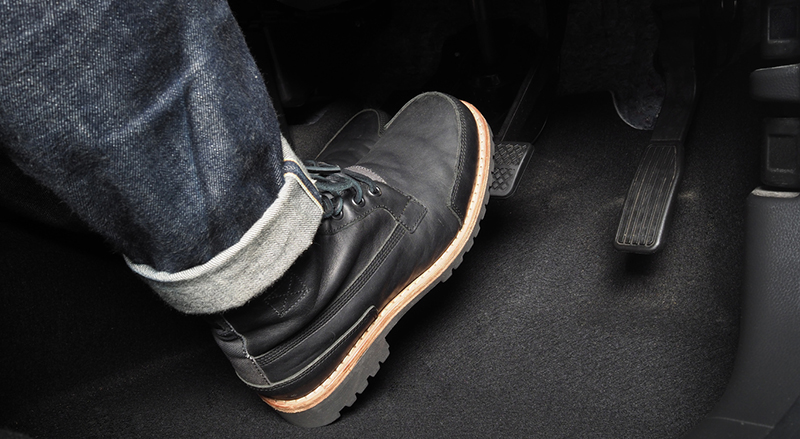Your vehicle’s brakes are essential to your safety on the road. That’s why it’s important to recognize the warning signs that they need to be repaired or replaced.
Let’s break down some common symptoms of brake failure and how to resolve them.
Your vehicle’s brakes are essential to your safety on the road. That’s why it’s important to recognize the warning signs that they need to be repaired or replaced.
Let’s break down some common symptoms of brake failure and how to resolve them.

Your vehicle can show many signs that it needs new brakes. Don’t chalk these symptoms up to your car’s “personality.” They’re showing you that something is amiss, so act right away if you notice any of the following symptoms.
Properly working brakes shouldn’t make any sounds. A screeching or grinding sound of metal on metal often means your brakes are severely worn down. In this case, your brake pads likely need replacing.
Failing brakes often vibrate or shudder when you use them. The most common cause is worn or severely corroded brake rotors or drums, which typically happens after a long period of inactivity.
A mechanical pulsing may mean your anti-lock braking system (ABS) is the issue. However, if the cause is misshapen brake rotors, the steering wheel may feel loose when you use the brakes.
If your vehicle is taking increasingly longer to come to a complete stop, you may be low on brake fluid, the brake rotors may be warped, or the brake calipers may be malfunctioning.
You also may have to push the brake pedal harder to bring the vehicle to a stop. This is commonly known as having a “soft brake pedal.” This may be a good time to flush the brake fluid (a.k.a. bleeding the brakes).
As you drive, you may feel your vehicle pulling to the left or right. This can mean one of the calipers or wheel cylinders is seized, causing one side of the brake system to do more work than the other.
A warning light may appear on your dashboard to let you know your brakes are in trouble. The most common causes for this light to turn on are:
Even though you may feel your brake light goes off all the time and can therefore be safely ignored, still have your brakes inspected. If it was a false emergency, ask the technician to take a look at the dashboard light. You need to be able to rely on warning lights so you can look into problems before they become serious or dangerous.
If you notice any signs of damage, don’t ignore them. Any issues with your brakes need to be addressed right away to prevent putting yourself and others at risk from harm.
However, having your brakes serviced every time you change your tires for the new season – or at least once per year can help spot signs of brake damage before they become serious and expensive to repair.
You can learn to DIY this task or go to an experienced mechanic. Step-by-step instructions on how to complete your own brake job are available here. Since brakes are so critical to your safety, it’s wise to have an expert check your work.
Driving carefully, avoiding abrupt stops, and not overloading your vehicle can also help prolong the life of your brake parts.
Check out all the brake products available at NAPA Canada or trust one of our 600 NAPA AUTOPRO locations for routine maintenance and repairs. For any questions about maintaining your brake system, visit a NAPA Auto Parts store for expert advice.